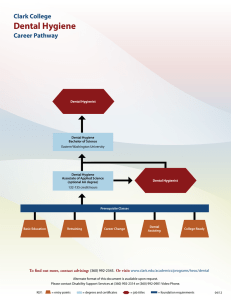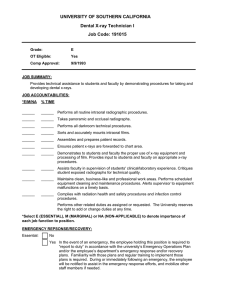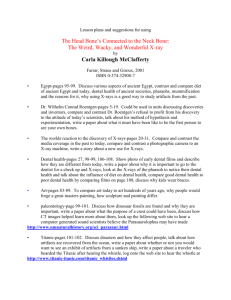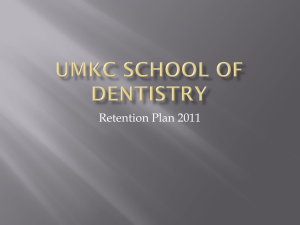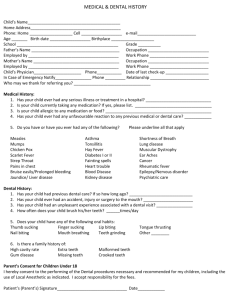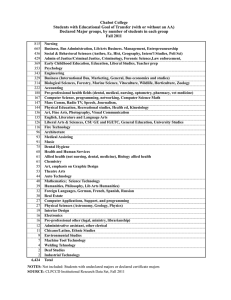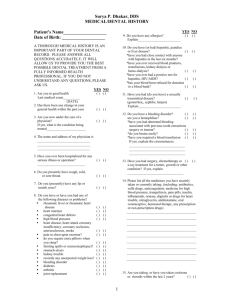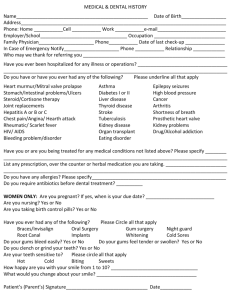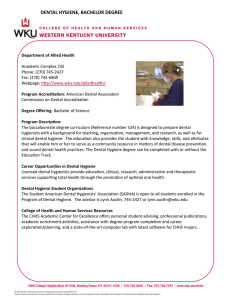Three Career Summaries
advertisement
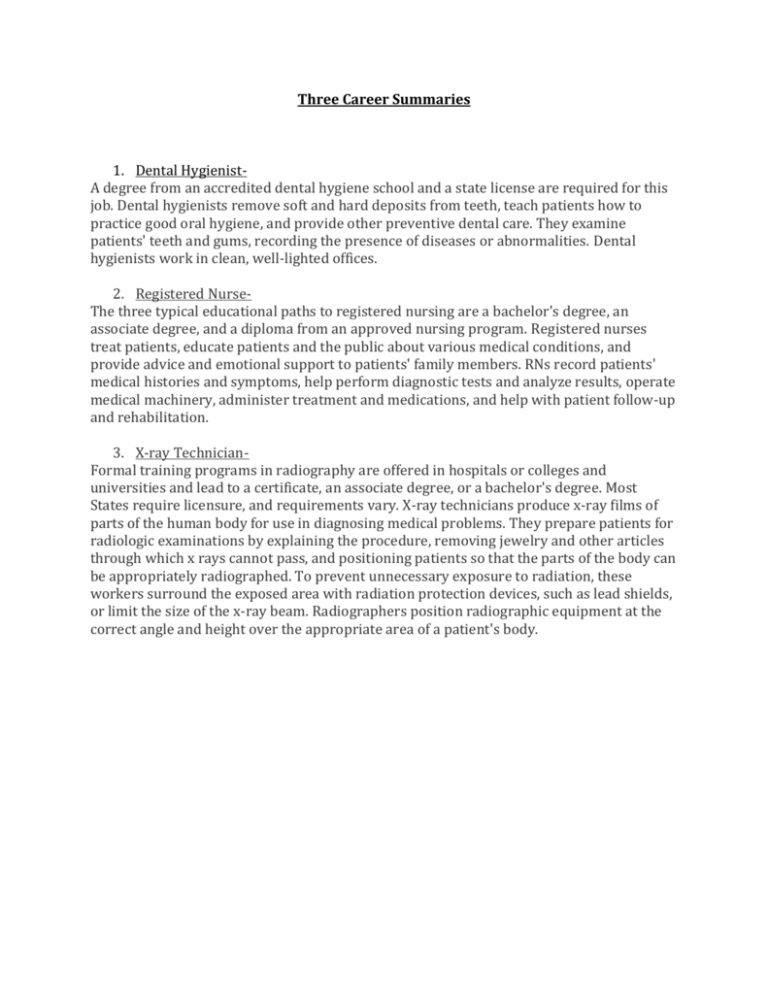
Three Career Summaries 1. Dental HygienistA degree from an accredited dental hygiene school and a state license are required for this job. Dental hygienists remove soft and hard deposits from teeth, teach patients how to practice good oral hygiene, and provide other preventive dental care. They examine patients' teeth and gums, recording the presence of diseases or abnormalities. Dental hygienists work in clean, well-lighted offices. 2. Registered NurseThe three typical educational paths to registered nursing are a bachelor's degree, an associate degree, and a diploma from an approved nursing program. Registered nurses treat patients, educate patients and the public about various medical conditions, and provide advice and emotional support to patients' family members. RNs record patients' medical histories and symptoms, help perform diagnostic tests and analyze results, operate medical machinery, administer treatment and medications, and help with patient follow-up and rehabilitation. 3. X-ray TechnicianFormal training programs in radiography are offered in hospitals or colleges and universities and lead to a certificate, an associate degree, or a bachelor's degree. Most States require licensure, and requirements vary. X-ray technicians produce x-ray films of parts of the human body for use in diagnosing medical problems. They prepare patients for radiologic examinations by explaining the procedure, removing jewelry and other articles through which x rays cannot pass, and positioning patients so that the parts of the body can be appropriately radiographed. To prevent unnecessary exposure to radiation, these workers surround the exposed area with radiation protection devices, such as lead shields, or limit the size of the x-ray beam. Radiographers position radiographic equipment at the correct angle and height over the appropriate area of a patient's body.
